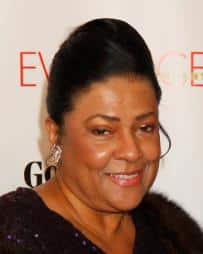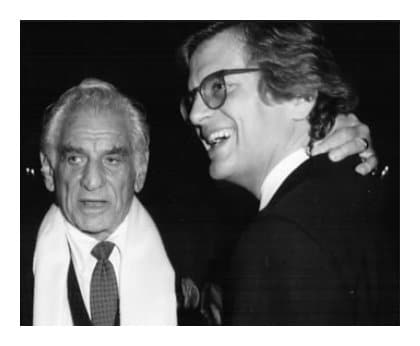Close to 1,000 performers at Three Choirs Festival
mainEngland’s annual Three Choirs Festival ended last night in Worcester.
The statistics are impressive.
Almost 1,000 performers in more than 100 events over 9 days.
252 works by 159 composers, one third of whom are alive today.
16 world premieres.
Only two reviews in national media.







Good to hear that the Three Choir’s Festival returned in glorious Worcester this year and an impressive number of performers involved.
Days of reviews long over.
I suppose people tweet how wonderful (or lousy) something was, or discuss it on Facebook with all the “friends.” As I decline to participate in either I miss reviews and reviewers. I knew their styles and tastes, and could tell, whether I was likely to agree with them or not, whether something was to my own taste. I also kept up with what was going on — who was emerging as a good actor, or singer, or player, or playwright, or whatever. Different view or not, I knew that most if not all of the critics of my youth and adulthood — until quite recently in fact — had awareness of their subject, not just subjective “opinions” or “feelings.”
As a working critic and reviewer myself from student days till I packed it in for health reasons, I always felt I had three equally important obligations: to the employer, to the extent of following the general guidelines the paper, magazine or broadcaster required; to the audience, or readership, to communicate as well as I could what had gone on at the event I had attended; and the art form itself, to know as much as I could possibly learn about the history from where it had come, to the state of the form and the artists in this day and age.
It is why I was reluctant to review cinema very often. Although I had a pretty fair knowledge of the form, and had seen many, many films, from classics to most of the top contemporary work, I did not have the sort of expertise I saw in the working film critics I knew and read. I did occasionally venture in, usually for a film about ballet, or the odd Shakespeare.
I know that expertise is a dirty word in several circles today — political, of course, but also in a lot of the young, who were raised to think the world began with them. When I met a cinema blogger a few years ago and he asked me about great movies I had seen, I mentioned a few obvious ones — Casablanca, The Third Man, The Godfather. He had HEARD of none of them, let alone seen them. So I asked what he rated, and it was all Lord of the Rings, The Hobbit, various later Stephen King and the like. Movies of his own youth (he was about 30). What came before had no interest for him. I find the same in young people who claim to be readers — they may know some of even the better current authors, but of the canon they neither known nor care. Yet these people set up as “influencers,” to use that benighted word, and attract followings.
Classical music is losing because of its association with the past.. That was a big enough problem before this BLM rubbish kicked in. It’s going to be an uphill battle, and the guns are pointed right at us.
You always raise interesting points.
In defense of the young, is it so unusual or so wrong for them to know a lot about the culture of their own time without (yet) being familiar with past glories? No doubt your blogger, 30 or 40 years on, will be lamenting that young people have never heard of the Lord of the Rings and other movies of his youth! And by that age, he may himself have developed an interest in even earlier cinema history.
The canon is problematic, in literature and in music. Its purpose is to create a common cultural and critical background. But it works by exclusion as well as inclusion, and what it excludes is devalued. Also it is quite rigid; works can be added, but slowly and with difficulty, and the more recent the work, the more resistance to its inclusion. And then it becomes top-heavy.
Classical music will survive. If its boundaries are extended as a result of the current furore about racial equality, that may not be a bad thing.
I’ve only recently come to rank highly the works of Zelenka, the ‘London’ Bach, Boccherini, Graupner, Leonardo Leo – mostly via YouTube channels. The ‘canon’ either excluded these, or dismissed them with faint praise (minor talents). The ‘Silver Latin’ poets, e.g. Statius, Silius Italicus, Martial, were sneered at by classical scholars as unworthy successors of the great Augustans. Our friend Kipling has had his ups and downs! Perhaps we should all form our own canons and reject authority.
Nothing wrong with being familiar with the culture of your generation, and I deplore exclusion with every fibre of my being. (Once, when on a cruise, my S.O. and I were both appalled when in St. Kitt’s a friend of ours related having gone to Nevis with local (i.e. expat) friends because the place they went was so “exclusive.” She was an upper class Irish lady whom we knew in London, and very nice, but, frankly, a snob).
But I find the lack of reference, the impossibility of allusion, let alone quotation, in the young astounding. I used the term “a prophet is not without honour, save in his own country.” Blank stares. I would never expect them to recognise the English title of the Bergman film Through a Glass Darkly — because they would not have heard of Bergman. And don’t get me started on what to me are well-known quotations from Shakespeare.
This is all very recent. I watch TV programmes from as late as the 80s and 90s, and they are larded with reference and allusion. Poirot calling something the “fons et origo.” Morse talking about opera, and specific conductors ( I have always wondered if the Toscanini Magic Flute was indeed the worst recording of it ever made!
Sure, some reasonably worthy artists are overlooked and only occasionally rediscovered (I would not have included Boccherini, but an orchestra I attended liked and favoured a few of his works). Nor would I have had included Martial.
But I was brought up in an environment of curiosity and reading and music and art, and had a rigorously classical education. Although the music of my youth was the Beatles and the Stones and Roy Orbison and the Beach Boys, I also knew the music of my parents’ generation, from big band to wartime songs. And I had been raised with opera and classical music, the folk songs of the British Isles, hymns, Gilbert and Sullivan, etc. And I read classic novels from childhood.
All that has changed relatively lately. I am all for adding to any repertoire or canon, but I think foundations are important. And our education system is failing young people. In my English Lang and Lit degree, I was required to do modern and classical languages, Greek and Roman lit in translation, history, and much more. My niece, taking a similarly named degree, took Women’s Studies and other less exacting courses — and in a university whose reputation had rivalled mine. Though I’m not very impressed with the curriculum at my alma mater these days, either!
So much is lost if we let these contexts evaporate. I often wonder at the attraction fantasy and horror films have for these young bloggers — it is rather like a rap fan telling me that he hated classical music (I doubt if he would have recognised the name of any composer other than possibly Beethoven) because it “all sounded the same.” Coming from a rap fan, whatever the merits of that form — and I would argue that they are manifold, socially if not musically — that’s pretty rich! Is it that they can deal with made-up worlds, but not with versions other than their own of real relationships?
Thanks for your kind opening remark.
I’ve never had a conversation with a rap fan.If I ever do, and if I told him or her that all rap music sounds the same to me, I’m fairly sure the response would be that of course it’s not all the same and I can’t have heard enough or been listening properly. I would suggest a deal; I would show him some of the variety in classical music, and he could do the same for me with rap. We might both learn a great deal.
Fantasy and horror films – simply the equivalent of medieval (and later) romance. Orlando Furioso (which I’m reading) and The Game of Thrones (which I’ve watched) have a lot in common. (I did try to read A Song of Fire and Ice, but failed.) Orlando Furioso spawned a multitude of fantasy (and sometimes horror) plots for Italian opera.
Not sure what point I’m making. It certainly deepened my enjoyment of The Game of Thrones that I knew something about the cultural hinterland, Arthurian romance, Nordic myth, and so on. But there may be much of the more modern genre that I don’t know and is equally interesting.
Of course, like you, I would wish all young people to be blessed with the range and depth of cultural context that my middle-class upbringing and education gave me. But give them time. I know much more now than I did fifty years ago!
“…the young, who were raised to think the world began with them. When I met a cinema blogger a few years ago and he asked me about great movies I had seen, I mentioned a few obvious ones — Casablanca, The Third Man, The Godfather. He had HEARD of none of them, let alone seen them.”
The days when whole families would watch family programmes on the TV or go to the cinema together are over. Now, the young shut themselves away in their bedrooms and seem to be incapable of communicating in any meaningful way with people outside of their own age group.
Parents are to largely to blame, in my opinion. Learn how to access the internet router and set restrictions. It’s not that difficult.
One of my cherished memories is going to movies with my family. During lockdown, I sought many films I had seen with them, from childhood to my late teens when the practice stopped when I went away to university. It was always a kick to remember something else we had all seen together -though my brother, fairly naturally, stopped joining in as he got older.
But after my mother died, he and I often tried to see a film with my Dad when we were all in the same town. And I, in the same town as Dad, would suggest movies for us to see together — sometimes ones I had seen elsewhere with others, knowing he would enjoy them. (Made a couple of mistakes, but on the whole they were movies we both adored. I made a Robert Redford fan of my father, and he adored The Godfather).
When my brother and I were in the same city, we would often take in a film together.
I mine my memory and every so often come up with something that had slipped from recollection, and my evening is set.
As a family, having emigrated, when we got our first TV most viewing was all of us. Those are incredibly happy memories. Later, after returning from university and in my own flat, while my brother was still finishing his locally, we would spend Sundays with my father and after dinner watch 60 Minutes and Masterpiece Theatre together. We all loved politics and some mid-culture (Wimsey, etc.).
The young do not know what they are missing. They’re not even off in their rooms all the time, either. They come to the dinner table with their faces in phones. (I absolutely forbid it at my table). What in God’s name is the allure of “I breathed out again” texts?
Parents ARE largely to blame: I agree with you. They are from the rock generation and later, the God is Dead generation, and what had, around them, been the rebellious generation. They tossed away a lot of what they were raised with, seduced by often legitimate protest, interesting protest-based music, emerging good bands that still knew how to spin a real song but in a genre that became more and more about noise and effect. They stopped going to church, as many young people have through the ages, though many return after a period of exploring alternatives. They started getting offered courses in women and other pseudo-sociological material.
And somehow they came to believe that child-rearing should be child-centric to the point of raising nasty little egotists who believed the world revolved around them that they were never wrong, or beaten in a race, or less than the best. They “negotiated” rather than punished when misdemeanours occurred.
And they bred a generation that has turned everything valued, even when challenged, for generations on its ear.
Adrienne, V.Lind – you are both suffering from a bad attack of ‘things-were-better-when-I-was-young’-itis (it occasionally gets me too). May I suggest a short remedial dose of Twosetviolin, along with the comments?
‘How to get into classical music’, https://www.youtube.com/watch?v=ITwRvyyrIPM
“‘things-were-better-when-I-was-young’-itis”
Yes, but they can be supported by facts, V Lind’s reference to classic films being a good example. Technology allows young people to filter their interaction with others in ways that were simply not possible decades ago. When I was young I had no choice but to talk to people, even when I didn’t want to. Did me a world of good.
So far as getting people into classical music is concerned, don’t get me started on that. In a black community it’s 10x harder and I’ve more or less given up.
Sorry — had to give it up after a few minutes.
And although I may seem to adopt the attitude you suggest, I do listen to young people. It distresses me that they are not getting a fraction of the education I got. Their world view strikes me as so very limited by the absence of context, history or reference.
there is usually a long and comprehensive review of the Festival in the Church Times – not sure how widely available that will be to non subscribers.